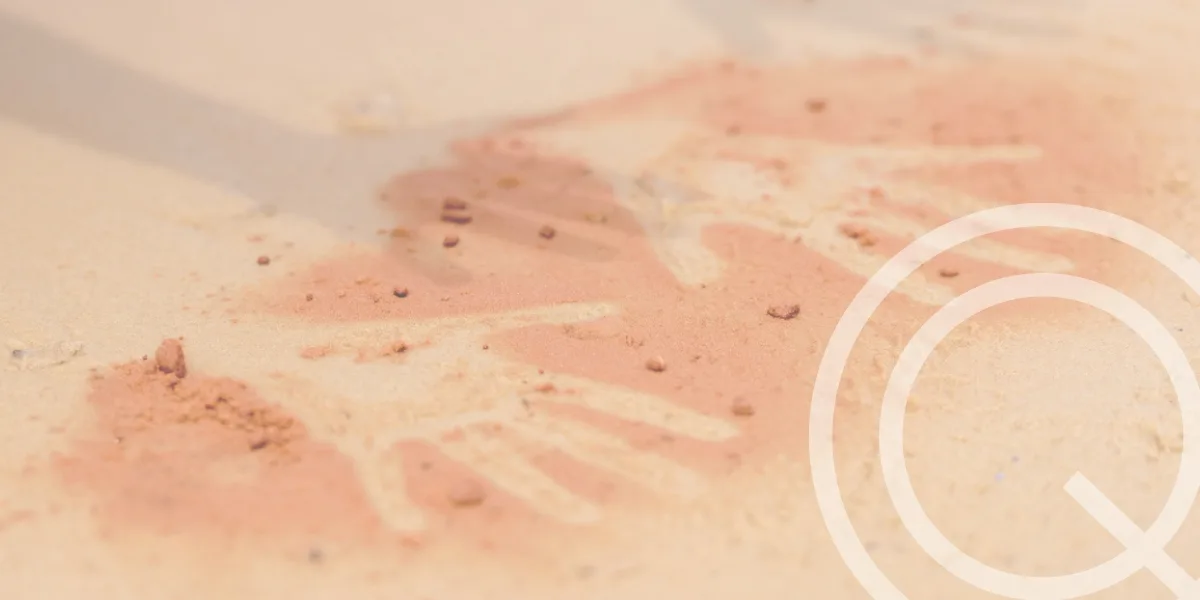KEY TAKEAWAYS:
Cultural competency
- assess team and individual cultural maturity and capabilities, including awareness of conscious and unconscious bias
- consider engaging an Indigenous engagement advisor to educate and upskill staff, particularly on issues such as gender, shame, kinship, and power imbalances, and how to sensitively manage these issues during an investigation.
Investigation planning
- ascertain if any participants identify as Aboriginal or Torres Strait Islander, if there are any kinship connections between participants, and whether any current ceremonies, such as sorry business, could impact engagement
- consider engaging an Indigenous engagement advisor to support the investigation process
- establish credibility and an early connection with participants using a more personal and relational approach
- consider adjustments to interview arrangements such as holding interviews outdoors and allowing additional time.
Interviewing
- consider commencing interviews with an Acknowledgement of Country
- use plain English and open-ended contextual questions
- as always, refrain from making judgements based on demeanor or body language, such as limited eye contact
- do not always take a nod or affirmative answer as agreement, it may mean a participant has disengaged or is uncomfortable.
For internal investigation teams and external professionals tasked with investigating discrimination, harassment and other complaints involving Aboriginal or Torres Strait Islander participants, cultural competence – the ability to understand, respectfully communicate and effectively interact across cultures – is an essential skillset that helps safeguard the wellbeing of participants and fairness of the investigation.
Cultural safety in workplace investigations
A culturally safe workplace or workplace investigation is one where employees, of all backgrounds, including Aboriginal and Torres Strait Islander peoples, feel comfortable, supported, valued, safe and respected.
Workplace investigations take place within an intricate framework of national, state and territory-based laws, awards, industrial agreements and workplace policies. Some of these make explicit mention of cultural safety, such as the positive duty on employers under the Sex Discrimination Act 1984, and the recently revised 2024 workplace investigations directive by the Queensland Public Sector Commission. This directive not only requires investigators have “a sufficient level of cultural capability when conducting an investigation that involves an Aboriginal person or Torres Strait Islander person” but also includes consideration and documentation of conscious or unconscious bias.
First Nations cultural considerations
While regulations, directives and workplace policies may prescribe the incorporation of culturally safe processes, what does this look like in practice in a workplace investigation?
At the outset, it is important that investigators genuinely reflect on and assess their own cultural awareness and competence. This includes identifying conscious and unconscious bias – preconceived ideas and stereotypes held about Aboriginal or Torres Strait Islander peoples.
Investigators who are curious and educate themselves through their own research or by engaging with Indigenous engagement advisors, will better understand cultural contexts as well as the various protocols, practices and experiences that can influence the engagement of Aboriginal and Torres Strait Islander participants in a workplace investigation. Those who do will be more likely to:
- establish credibility
- obtain information
- reduce the risk of exposing participants to further harm.
At Q Workplace Solutions, we have been working closely with an Indigenous engagement advisor to raise our awareness levels of important cultural considerations that may impact Aboriginal and Torres Strait Islander participants. Some of these considerations include:
Gender – certain customs and practices are performed by men and women separately and sometimes only people of the same gender may feel comfortable to talk about certain issues (men’s and women’s business). For example, female participants in a workplace investigation may not feel comfortable discussing sensitive issues with a male investigator. Conversely, men may not feel comfortable discussing topics related to women’s business.
Shame – is a complex cultural experience influenced by intergenerational discrimination, whereby an Aboriginal or Torres Strait Islander person feels embarrassed or ashamed in or by certain circumstances or situations. This could be as a result of attention on them during a workplace investigation and their fear of bringing shame on themselves or their family. The feeling of shame can overwhelm a person.
Kinship – defines where a person fits into family and community structures and their accompanying responsibilities and obligations. Workplace investigations involving members of the same ‘mob’ or kinship group are inherently challenging because participants are likely to feel restrained from disclosing information that could breach kinship bonds or bring shame.
Power imbalances – are historical and institutionalised for Aboriginal and Torres Strait Islander peoples. As a result, participants may be less likely to challenge or disagree with those perceived to be in authority. For example, participants may not make eye contact, or may disengage when feeling disempowered or intimidated in a particular situation or environment.
Planning a culturally safe workplace investigation
When an investigator is engaged to undertake a workplace investigation, it is helpful to ascertain, if possible, whether any participants identify as an Aboriginal person or a Torres Strait Islander person, and if there are any family or kinship connections between participants in the investigation.
If this information is known, the investigator (or the case manager) can speak with the participant about practical ways to help them feel more comfortable with the process. Based on our firm’s experiences, some issues for investigators to be aware of and strategies to consider include:
- establishing a connection and building credibility ahead of an interview by introducing themselves using family and land connections, rather than job tiles or roles. For example: “My name is Jennifer Martin. I live and am raising my family in East Brisbane on the traditional lands of the Turrbal and Jagera peoples. I look forward to yarning with you.”
- inviting participants to bring a support person, such as an Elder, friend, family member or union representative to the interview
- engaging an Indigenous engagement advisor to provide support during the investigation, such as advising on how to draft emails to participants. If participants agree, the advisor could also attend interviews, to provide support.
“Having a cultural advisor present broke down barriers faster and opened up conversation. I think overall rapport was better and sustained throughout the interview, even when I had to ask harder questions. I sensed more trust from the participant. I was also able to debrief afterwards and seek feedback from the advisor on how she thought I handled the situation, which is invaluable.” Q Workplace Solutions Investigator Courtney David.
- allowing additional time for interviews to build rapport and trust, and to avoid rushing or putting participants under pressure
- considering alternative interview locations to a traditional office situation. Locations could include an outside venue, with the investigator and participant sitting side by side, or as is more commonly the case now, online from the participant’s home
- ascertaining whether any community or family-related ceremonies could impact a participant’s engagement in the investigation process, such as sorry business.
Interviewing First Nations participants
Every interview is different and should be approached and structured with the individual needs and circumstances of the participant in mind. However, there are some simple, but meaningful and respectful points investigators may consider incorporating into their interviews:
- as a show of respect, consider offering an Acknowledgment of Country at the beginning of an interview, or the end if you learn during the interview your participant identifies as an Aboriginal person or a Torres Strait Islander person
- use plain English and avoid technical jargon or ‘corporate speak’ to achieve clear and effective cross-cultural communication
- use a range of open-ended contextual questions, in favour of direct or closed questions, to encourage and empower a participant to speak freely around an issue, to gain a more comprehensive response
- refrain from making judgments based on a participant’s demeanour or body language. For example, a participant who does not make eye contact when speaking
- if the participant becomes closed off or disengaged, check in to see if you have done or said something to make them feel uncomfortable, or take a short break to allow them to talk with their support person
- be alert to participants who nod their head or agree in response to direct closed questions. This type of engagement with one-word responses may signal that a participant is uncomfortable and has disengaged from the process – not that they agree with your statements.
Truth-telling inquiries
Current state-based truth-telling inquiries – which encourage the open sharing of historical truths and experiences to encourage healing and reconciliation – offer instructive models of engagement for workplace investigators on gathering testimony and evidence from Aboriginal and Torres Strait Islander peoples. Victoria’s Yoorrook Justice Commission – which commenced in 2021 – and Queensland’s Truth-telling and Healing Inquiry – which commenced in July 2024 – consulted widely with Aboriginal and Torres Strait Islander communities on the most culturally appropriate ways to encourage participation in these processes without causing further psychological harm or trauma.
The Yoorrook Justice Commission, which is due to deliver its final report in 2025, established cultural protocols for the conduct of the Commission’s work and developed guidelines on information and evidence gathering that are responsive, respectful and “recognise First Peoples’ cultural and legal practices of storytelling and witnessing as legitimate and valid sources of evidence”. The Commission also appointed respected community members as Truth Receivers to help collect accounts and evidence from Aboriginal and Torres Strait Islander peoples in-person, or via audio, video, paintings or other artefacts.
At Q Workplace Solutions we will be watching and learning from the framing and conduct of these inquiries to incorporate cultural best practices into our own work.
Our cultural journey
About five years ago, when our specialist workplace investigations firm found itself undertaking more frequent investigations involving Aboriginal and Torres Strait Islander participants, our team wanted to ensure that we were providing a culturally safe place for participants to engage with us.
To achieve this, we recognised that we needed to build our own cultural awareness, maturity and capabilities as a firm, and as individual investigators. As part of this ongoing education process, we are fortunate to work with Indigenous Engagement Advisor, proud Wiradjuri Murrawarri woman from Western New South Wales, who now resides on Gubbi Gubbi Country in Queensland, Christina Coleman.
Christina works with our team on a quarterly basis, exploring current topics and communication challenges. She also provides specific cultural advice and support on individual workplace investigations and culture reviews involving Aboriginal or Torres Strait Islander participants. On occasions when Christina has provided support during interviews, we have received overwhelmingly positive feedback about the process from participants and their employers. We thank Christina for leading and enriching our cultural journey with her story and truth-telling, humour and candour.
Our sincere thanks to Q Workplace Solutions Indigenous Engagement Advisor Christina Coleman for contributing to the development of this article and her advice (below) on the supporting imagery.
“Handprints are a significant cultural and spiritual aspect for many Indigenous communities within Australia. They symbolise identity, continuation of cultural traditions as well as our connections to our ancestors. The ochre further emphasises cultural significance.
“Regarding the reflective nature of the image, it gives people an opportunity to reflect on cultural practices used by Indigenous people from either the past, present or even future and also the resilience of many Indigenous people and communities.
“The image suggests the integration of Indigenous perspectives and values into a contemporary setting and takes into consideration the ongoing presence of Indigenous culture, even in environments where a physical Indigenous presence might not be immediately apparent.”







